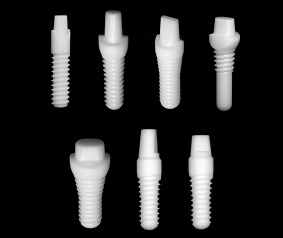Swedish Study Finds Oral Bacteria In Aggressive Pancreatic Tumors
 AD Ratings - Dental
AD Ratings - Dental
 Sep 28, 2025
Sep 28, 2025
Swedish Researchers Link Oral Bacteria to Aggressive Pancreatic Cancer Tumors
In a groundbreaking discovery, scientists in Sweden have found a strong correlation between certain bacteria from the mouth and highly aggressive pancreatic cancer cysts—offering a new pathway for earlier diagnosis and possibly less invasive treatment of the disease.
Pancreatic cancer remains one of the deadliest cancers, largely due to its late detection. Traditionally, patients must undergo surgical procedures just to confirm whether a tumor is benign or malignant. But this latest study from the Karolinska Institutet offers hope for a less invasive, more accurate diagnostic method.
Study Finds Bacterial DNA in Malignant Pancreatic Cysts
The research, published in the medical journal Gut, involved an in-depth analysis of fluid from pancreatic cysts in 105 patients. Scientists found that more advanced, malignant cysts had significantly higher levels of bacterial DNA—particularly from oral bacteria—compared to benign ones.
Lead author Dr. Margaret Sällberg Chen commented, “We observed a notable presence of oral bacteria in the cysts at stages where early cancer development begins. This opens up the possibility of using bacterial signatures as early biomarkers to identify which cysts may progress to cancer and require surgical removal.”
The Challenge of Late Detection
Each year, tens of thousands of people in the U.S. alone are diagnosed with pancreatic cancer—most of them too late for effective treatment. Out of an estimated 56,770 annual diagnoses, more than 45,000 patients were projected to succumb to the disease before 2020, primarily due to delayed identification.
Pancreatic cysts are often benign. But distinguishing between harmless and potentially deadly ones currently requires at least one invasive surgical procedure, making the process both physically and emotionally draining for patients—and resource-heavy for healthcare providers.
This new research proposes a potentially simpler alternative: using the bacterial profile of cyst fluid to identify malignancy earlier.
Oral Bacteria in the Pancreas: A Surprising Yet Logical Discovery
The researchers sequenced the bacterial DNA in the fluid from 35 highly suspicious pancreatic cysts and were struck by the variation in bacterial makeup. Surprisingly, tumors with higher dysplasia—a precursor to cancer—contained more DNA from oral bacteria.
Dr. Sällberg Chen noted, “Although it was unexpected to find bacteria from the mouth in the pancreas, previous smaller studies had already hinted that patients with pancreatic cancer have higher levels of specific bacteria in their saliva.”
The team also observed that patients who had undergone pancreatic endoscopy—a procedure where a flexible tube is passed through the mouth to examine the pancreas—had higher amounts of bacterial DNA in their cyst fluid. This suggests a possible introduction of oral bacteria during the procedure.
Future Implications: Antibacterial Strategies and Preventative Steps
Researchers believe these findings could pave the way for new diagnostic and therapeutic approaches. If oral bacteria are contributing to tumor development, future treatments may involve antimicrobial therapies or pre-procedural oral rinses to reduce bacterial transfer.
While more studies are needed to confirm the findings, Dr. Sällberg Chen emphasized the potential for a practical solution: “We can’t say for sure that endoscopy is the sole reason oral bacteria show up in the pancreas, but taking precautions like using antibacterial mouthwash before procedures could reduce this risk—and that’s worth exploring in future clinical trials.”
Conclusion:
This study, a collaborative effort between several departments at the Karolinska Institutet and the Science for Life Laboratory, could revolutionize how we detect and manage pancreatic cancer. By understanding the role of bacteria in tumor development, science may soon offer earlier, less invasive, and more effective diagnostic tools.
Trending News
-

The New Face of Plastic Surgery: How Ozempic, Hormones, and Social Media Are Reshaping Aesthetics in 2025 Dave.C
-

Are Your Implants Covered? Understanding Plastic Surgery Complication Insurance David.C
-

How to Treat Pigmentation Changes on Melanin-Rich Skin Post-Eczema David.C
-

10 Reasons Why Metal-Free CeraRoot Zirconia Dental Implants Are Superior Dr. Azadeh Khajavi - Excellence Dental
-

9 Recovery Tips From a Plastic Surgeon (and Patient) to Make Healing Easier Dave.M
